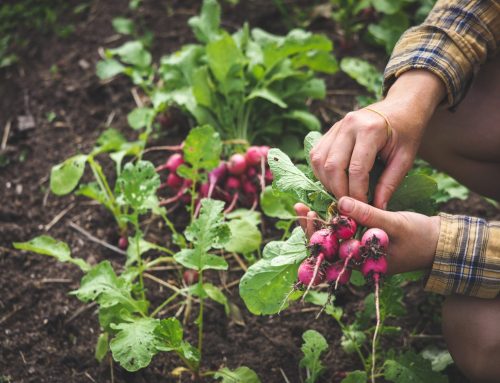Story by Tammi Jonas, AFSA President, May 2015
 On Monday the 27th of April, over 40 Australian farmers, chefs, providores and assorted supporters, journalists and academics came together to discuss the potential for an Australian organisation similar to the American Farm to Consumer Defence Fund.
On Monday the 27th of April, over 40 Australian farmers, chefs, providores and assorted supporters, journalists and academics came together to discuss the potential for an Australian organisation similar to the American Farm to Consumer Defence Fund.
 Together with the support of Lisa Heenan and Darren Doherty of Regrarians and Guy and Liz Grossi, AFSA welcomed Joel Salatin of Polyface fame to address the group on the topic of ‘A Fair & Regenerative Food System’. Over the course of a very full day punctuated by some very delicious food graciously provided by the Grossis, we worked through the issues as we see them and what Australian growers and eaters can do about them.
Together with the support of Lisa Heenan and Darren Doherty of Regrarians and Guy and Liz Grossi, AFSA welcomed Joel Salatin of Polyface fame to address the group on the topic of ‘A Fair & Regenerative Food System’. Over the course of a very full day punctuated by some very delicious food graciously provided by the Grossis, we worked through the issues as we see them and what Australian growers and eaters can do about them.
Joel’s talk was (predictably) equal parts inspiring and entertaining. He commenced with a quick history of the industrialization of agriculture, and how with industrialization came long supply chains and decreasing transparency. As industrialization led to a fear of what we couldn’t see, we ended up with an industrial food regulation system.
Joel then gave us some trademark pearls of wisdom:
- industrial orthodoxy is scale prejudicial – it’s easy to scale up, but can’t scale down
- industrial orthodoxy is extremely subjective – one day the regulators expect your boning room to be blue, the next pink, the next green (and I’ll add that some of them might be colourblind)
- industrial orthodoxy is adversarial – it sets regulators and regulated up as adversaries from the outset
- industrial orthodoxy is efficiency-prejudiced – eg. increased throughput at an abattoir is cause for celebration, instead of increased welfare at that same abattoir
- industrial orthodoxy doesn’t inform, it just codifies.
Joel asked the provocative question, “what will our children think of the current orthodoxy that safe food is sterile?”
This culture of sterility says:
- Coca Cola is safe but raw milk is dangerous;
- spreadable cheese product is safe but Roquefort is dangerous; and
- petroleum-based fertilizer is safe but compost is dangerous.
While some of us are engaged in re-building a food system outside of contemporary industrial orthodoxies, Joel points out that there are new areas of conflict ahead. The re-zoning and claiming of agricultural land for urban development is just one planning problem we face, and it’s a big one. He’s also concerned about insurance policies written for an industrial society rather than your small, local farmer who just needs a farm hand, and the restrictions on housing more than one nuclear family when regenerative farming takes many hands – we need ‘more eyes per acre’, not less.
While some of the issues Joel raised may be more specific to the United States, his remedies resonate. First and foremost, we need food sovereignty laws to establish the people’s right to collectively determine our own food and agriculture systems.
Such laws could, as Wyoming has recently done, exempt all direct producer to consumer transactions from the usual regulatory framework (meat and dairy are excluded). Or they could be exempt based on numerical scale – this sort of exemption already exists in many examples of legislation. Exemptions could be based on location, description, empirical testing, or, Joel suggests, complete circumvention.
In the US, they have the Farm to Consumer Legal Defence Fund, which was established in the mid-2000s to protect people’s right to sell or acquire the food of their choice, and to protect against harassment by regulating authorities. The Fund operates a 24/7 hotline for producers to ring for immediate advice when the ‘food police’ roll up their driveway.
Joel says he’s used it three times, and the last time was when authorities destroyed some of his eggs in a restaurant for not being stamped – the chef rang Joel, who rang the hotline, who rang the authority, who withdrew their claim against Joel within 24 hours. As Joel says, if he’d been left on his own to fight the regulator, he’d still be trying.
Joel finished off by asking how can we embrace live food again? The current system has centralized risk and removed responsibility and with it, choice. What we need to do is de-centralise risk and distribute responsibility.
The rest of the day was spent working through the issues producers, providores, chefs and eaters are facing in our attempts to grow, buy and eat the food of our choice, and commencing the discussion of what an organization like the Farm to Consumer Legal Defence Fund in Australia might look like.
Do we need a hotline? Templates to assist producers in complying with regulations? Templates to assist council in understanding how they can support flourishing local food economies? Advocacy for legal reform?
We’re interested in your views.
If you want to learn more or support our work with the Regrarians and the Grossis to establish an organization like America’s Farm to Consumer Legal Defence Fund, drop us a line at admin@afsa.org.au.au. Or even better, join AFSA today – every voice makes us stronger and helps us build a fair food future for Australia.


